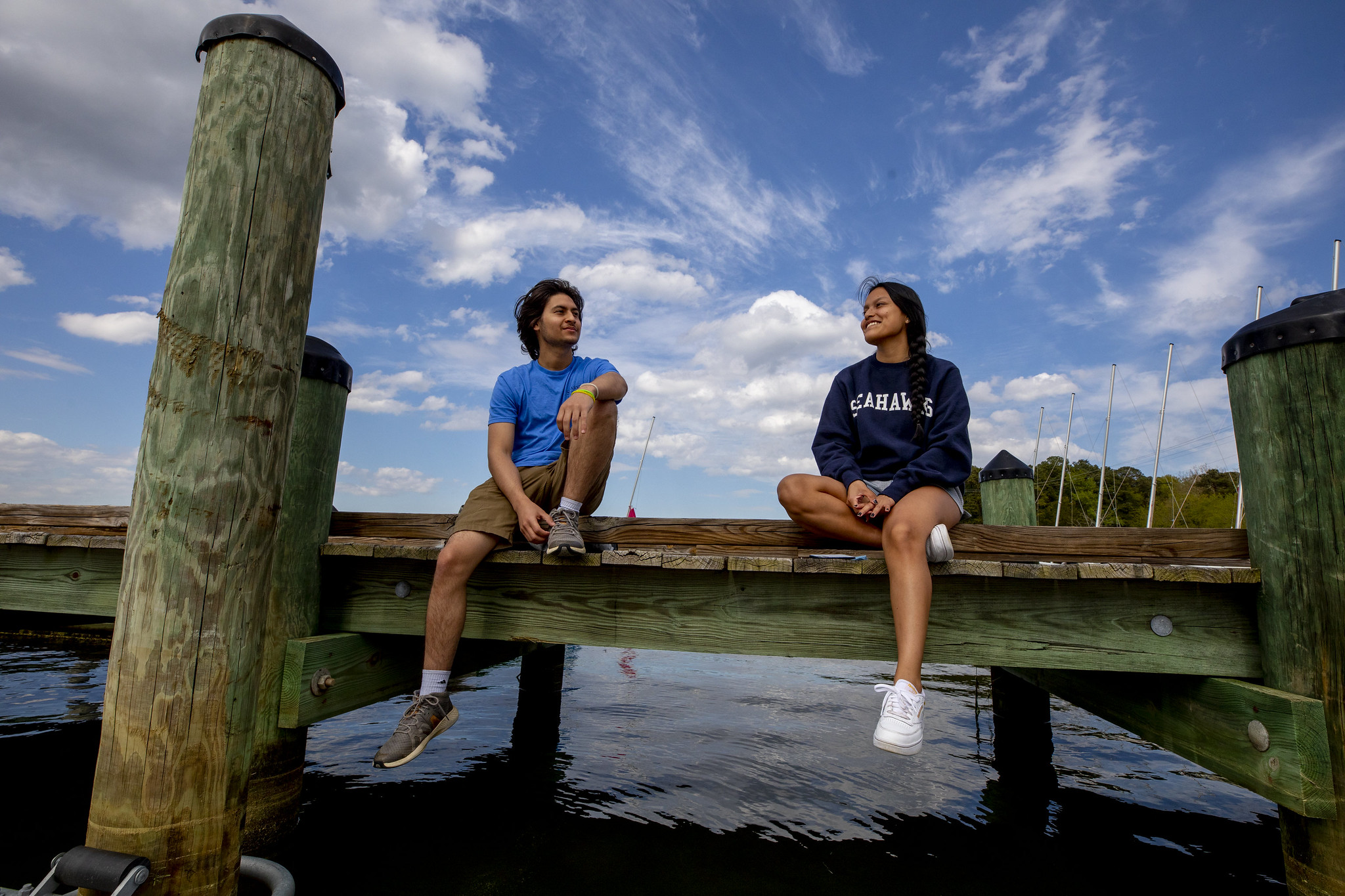Following the Americans with Disabilities Act (ADA), Section 504 of the Rehabilitation Act of 1973, as amended, and applicable state law, St. Mary’s College of Maryland (SMCM) does not discriminate against any individual on the basis of handicap or disability. As a result, SMCM will consider requests for reasonable accommodations for students who self-discloses a disability or disabling health conditions. Accessibility Services works with students, faculty, and staff to promote access on our campus.
OUR MISSION
The Office of Accessibility Services (OAS) provides and facilitates reasonable accommodations for students with qualifying disabilities or disabling health conditions. These accommodations are designed to facilitate equitable access to the student experience as they intersect with academic, dining, and residential dimensions of SMCM.
We work with our students to actively problem-solve the barriers they encounter on our campus, using a process focused on autonomy and self-advocacy. OAS also works with faculty and staff to ensure equitable and compliant processes, materials, and training around issues that affect academics and student life. The purpose of our office is to serve St. Mary’s College as a resource and conduit for accessible and inclusive practices.
OUR VALUES
The values that shape our mission, vision and outlook as an office are simple. We look at each student as an individual with skills and strengths that can be highlighted when they are provided access. We know our students come to us with a set of experiences that are unique to them. Our students’ intersectionality develops how they see the world and affects how they navigate it. Our office strives to be equitable, accessible and just in all processes and interactions, meaning we look to understand our students as a whole to hopefully allow students to unlock their utmost potential in the SMCM community and classroom.
OUR VISION
Facilitating accessibility and inclusivity requires ongoing attention to the context and structures in which students live and learn at St. Mary’s. This requires regular collaboration with students, faculty, staff, and even the communities outside our campus, to ensure we have access to the most recent and relevant information for informed decision-making and support. Attention to accessible and inclusive practices requires us to respond to existing barriers on our campus and to proactively engage in conversations and endeavors that allow us continuously expand our scope of inclusivity. In many ways, our work is iterative and highly dynamic; expanding accessibility and inclusive practices around the academic and campus experience at SMCM means that we are constantly uncovering barriers, responding to those challenges, and planning for wider universal access.
Promoting equitable campus experiences means supporting our students in a holistic manner. This includes considerations of how barriers related to ability and health intersect with race, ethnicity, sexuality, gender, age, socioeconomic status, or other identities. We strive to learn about each students’ strengths, needs, experiences, and interests so that their customized accommodation plan mindfully addresses the barriers they will most likely or consistently encounter. We recognize that we may not be able to provide accommodations that address barriers beyond disability, but we will actively advance conversations around other barriers that become known to our office. It is our ethical duty to call out practices that may not be inclusive to all and try to work on actively changing those practices. This means looking at our own practices and approaches with a critical lens. Our office strives to create an environment where students feel valued for their strengths and empowered to navigate the barriers around our campus. We look to open our office to each of our students in such a way that they can continually work with us and engage in additional conversations in regards to new or different barriers they may encounter during their time at St. Mary’s.
The work of OAS is designed to complement, but be identifiably different from the work of other offices committed to support of the student experience on campus. Our central focus is on the barriers to student learning and living experience and help them navigate these barriers.

